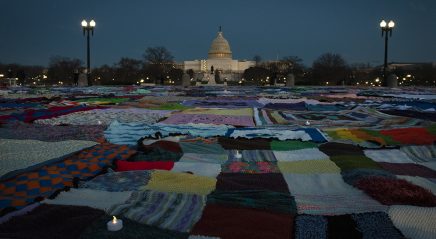Elizabeth A. Eaton, presiding bishop of the ELCA, has issued a message expressing her disappointment in the Supreme Court’s decision in Grants Pass v. Johnson, which clears the way for civil and criminal penalties for unsheltered persons sleeping in parks or on other public property. “This could jeopardize the work of Lutheran ministries and organizations dedicated to helping people experiencing homelessness,” the message read, in part. “As a church, we are called by God’s grace to love and serve the most vulnerable and marginalized neighbors in our communities.”
The message continued: “Worshiping communities in the ELCA include people experiencing homelessness, which is not a moral failing; often it results from societal factors such as lack of affordable housing, stagnant wages and lack of affordable access to mental health services. Fining or imprisoning people without addressing these root causes drains public resources better directed at supportive housing services.
“Criminalizing homelessness is misguided both ethically and pragmatically. As Christians, we are called to embrace marginalized neighbors with compassion, not punishment. Penalizing people for lacking adequate housing runs counter to our core tenets of justice and dignity. Christ himself had ‘nowhere to lay his head’ (Luke 9:58) and the prophet Isaiah urges the people of God to ‘bring the homeless poor into your house’ (Isaiah 58:7). Criminalizing their circumstances compounds their suffering and diminishes their opportunities to find stability.”
Eaton called on elected leaders and public servants to implement solutions rooted in basic human rights. “Rather than punish those without shelter, we need to support policies and investments in affordable housing, boost homelessness prevention resources, collaborate with ministries and expand supportive services,” the message reads.
The message references the ELCA’s 1990 social message “Homelessness: A Renewal of Commitment,” which states that “God’s love in Jesus Christ … [moves] us to care for homeless people as God cares for all.” It also calls on the church to learn about housing insecurity, pray for those affected by the decision and for ELCA ministries that work to secure shelter, and engage in activities to support policies related to housing, pointing to resources from the ELCA Homeless and Justice Network and the ELCA World Hunger resource on housing.








